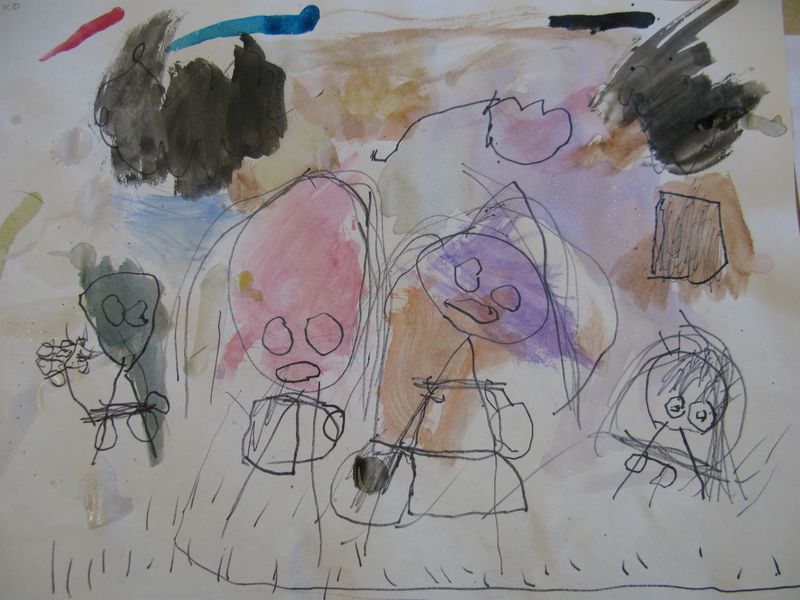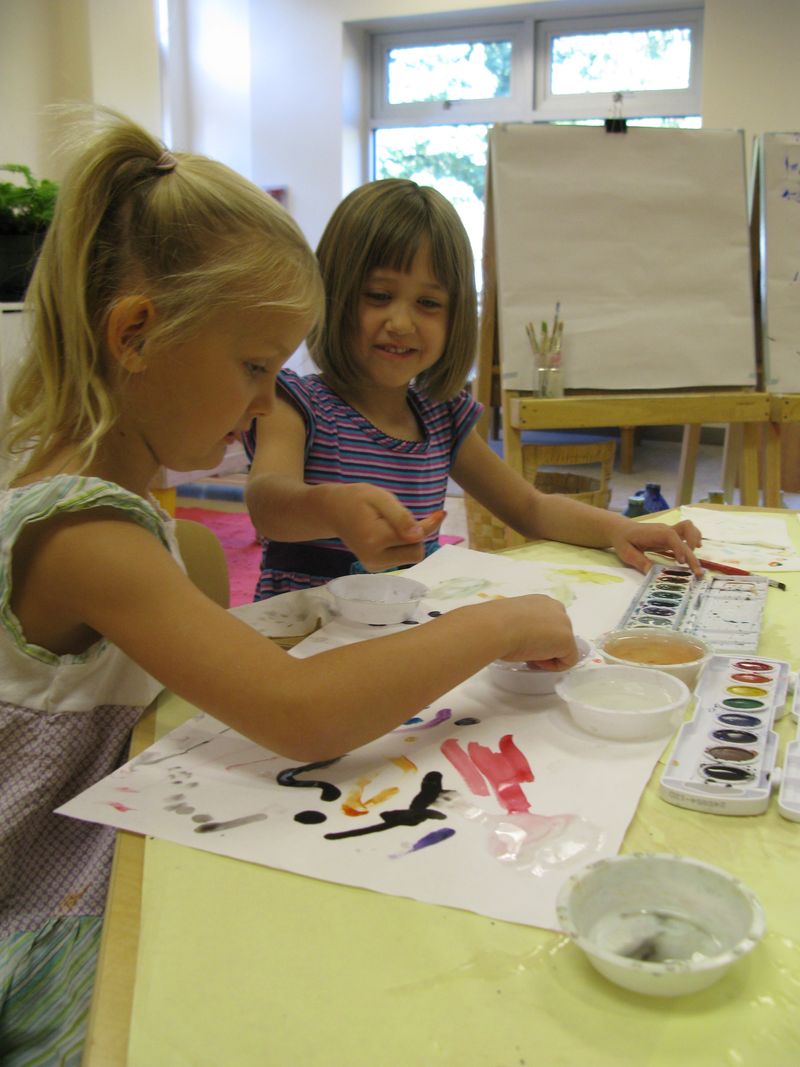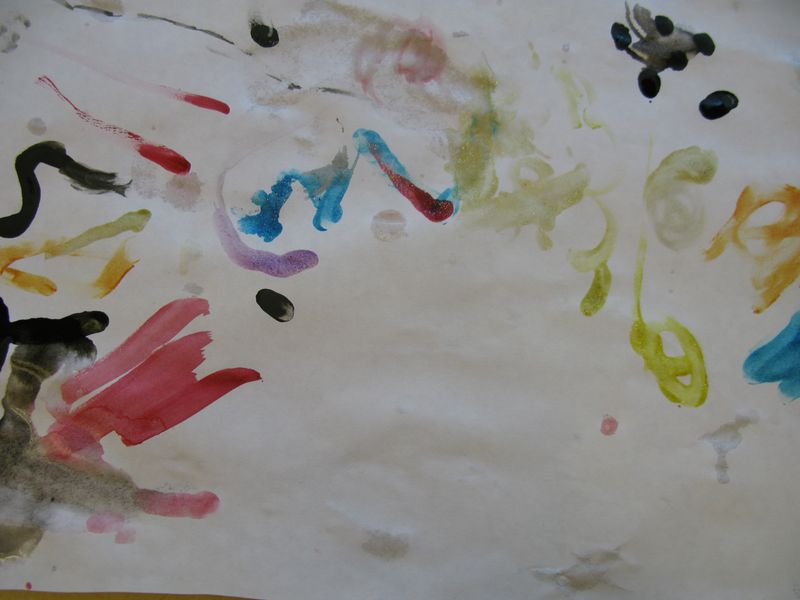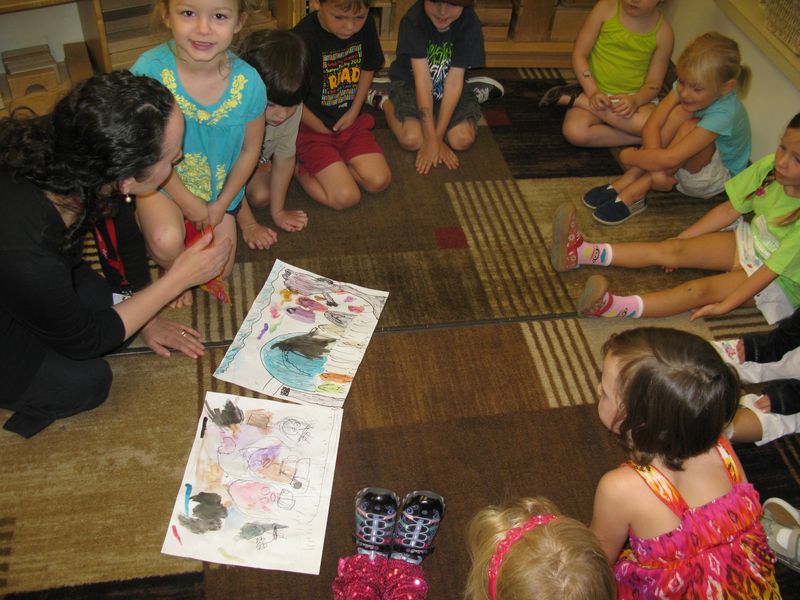Listening for what they are trying to do
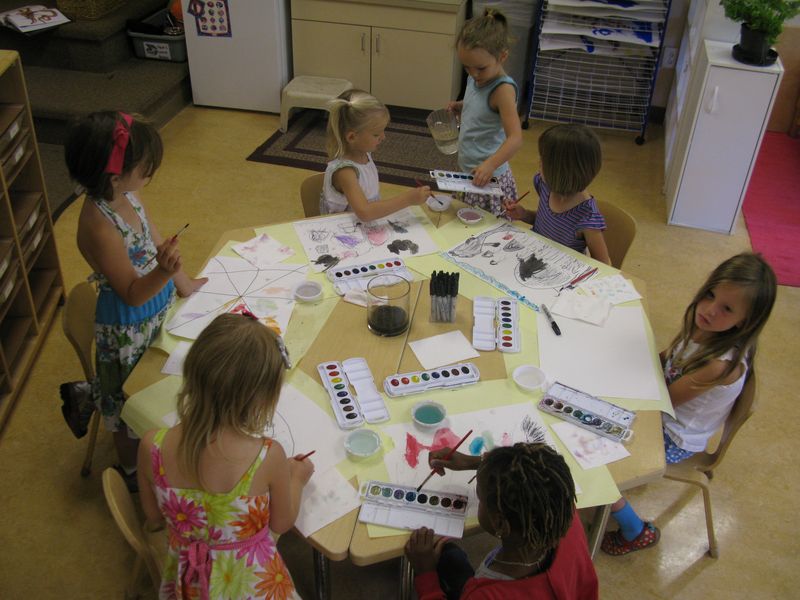
On the second day of school, these 5-year-old children were invited to revisit drawings they'd made on the first day of school with watercolor paints– adding color to summer stories. These children, who don't know each other yet, gathered around the table to paint. Grateful to have something to occupy their time as they learn to be together.
As two children finished painting with brushes, they discovered what could happen when their fingers met the paint instead. It quickly became a messy way for two new friends to giggle together and connect. And the summer stories were forgotten– at risk of being taken over by lines of thick, careless paint. New friendship and sensory play is always more compelling than old stories — in the first days of school in kindergarten especially.
As an adult observing this scene unfold, decisions have to be made. Priorities have to be acknowledged. Truly, they are making a mess. The paint is being wasted. Their story paintings will be ruined — sacrificed to impulse.
It is a powerful moment, filled with the energy and delight of the possibility of making a new friend. As the adult, I have the power to shut it down, or shine a light on what is going on. And though I worry about the paint, the mess, the rules, the integrity of the stories — cared so deeply about the moment before–mostly I want the girls to stay delighted. Because what is happening between them is the most important thing of all.
And all it takes is an invitation: Would you like a new piece of paper so that you can explore the paint together? Yes!
Stoies saved. Delight preserved. And it didn't take long, so paint saved. They did what they were trying to do. And they moved along.
In her poem Wild Geese, Mary Oliver writes:
You do not have to be good.
You do not have to walk on your knees
For a hundred miles through the desert, repenting.
You only have to let the soft animal of your body
love what it loves.
Tell me about despair, yours, and I will tell you mine.
Meanwhile the world goes on.
Meanwhile the sun and the clear pebbles of the rain
are moving across the landscapes,
over the prairies and the deep trees,
the mountains and the rivers.
Meanwhile the wild geese, high in the clean blue air,
are heading home again.
Whoever you are, no matter how lonely,
the world offers itself to your imagination,
calls to you like the wild geese, harsh and exciting –
over and over announcing your place
in the family of things.
What can happen when we assume that children want to be good– but understand that the things they may choose to do don't have to be? That they want to belong? That they and their impulses and their intentions are worthy of being listened to? That they need support to think about their thinking and learning in order to recognize their place in the family of things? What might happen then?
And what might happen when we take time to tell these stories of celebration, success, innovation, and connection to the others? What kind of culture might we grow?


